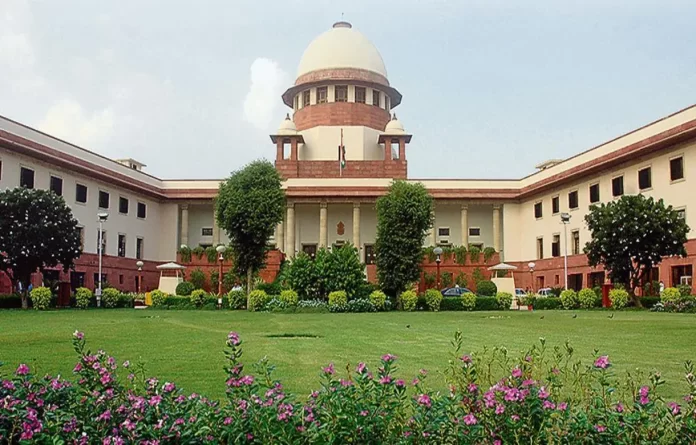The Supreme Court recently imposed costs of Rs 5 lakh on the Telangana government for filing incorrect affidavits in a case.
A bench comprising Justice MM Sundresh and Justice SVN Bhatti clarified that the state is free to enquire into and recover the money from the officers responsible for the lapse. Notably, the lapse in question was with regard to the stand taken by a district collector on whether a property embroiled in a suit was forest land or not.
The Supreme Court remarked that they are dealing with a case where an instrumentality of the state, despite a categorical finding of the suit property being a forest land, took different stands, but ultimately rectified by way of an affidavit before this Court.
The bench mentioned that as a result of the erroneous position taken by the state official, a private party was earlier awarded title to certain land despite it being notified as non-transferable forest land.
The court underlined that this act of taking different stands resulted in facilitating the impugned order being passed in favour of the respondents, setting aside the concurrent judgments rendered by two courts below, on appreciation of fact and law. It added the importance of preserving forests in its order, before eventually setting aside the High Court’s 2021 decision to grant title rights to the said forest land in favour of a private party.
Furthermore, the court observed that human beings indulge themselves in selective amnesia when it comes to fathom the significance of forests. It noted that it is the forests which give life to the Earth by replacing carbon dioxide with oxygen, thereby providing a hospitable environment for the steady growth of diverse life forms. It continued that it is the spirit of the forest that moves the Earth. History shall not be understood from the jaundiced eyes of humans but through the prism of the environment, the forest in particular, the apex court continued.
The matter relates to a certain land in Kompally village. Initially, the original plaintiff had lodged an application to correct certain survey errors and secure title to the said property to which he claimed to be a co-owner. Nonetheless, before this application was even decided, a part of this land was declared a reserved forest in 1971, that is it could not be transferred to any private party.
However, a Joint Collector at Warangal allowed the application filed by the plaintiff in 1981. When the plaintiff realized that he would not gain any benefit from this action since the land was declared a forest area, he lodged an application before the state government to denotify the said land. The state government dismissed his application in 1984, which was then challenged before a trial court.
Subsequently, the trial court allowed the plaintiff title rights over the said land. Nonetheless, it declined to allow the plaintiff’s claim for a permanent injunction to restrain the State authorities from continuing to retain the land.
Later in 2018, the Telangana High Court set aside the trial court’s finding regarding title but confirmed the trial court’s decision to refuse any injunction in favour of the plaintiff. The High Court rejected the plaintiff’s suit completely, noting that the suit property fell under forest land.
Later, the 2018 ruling was reversed by the High Court itself in 2021 after a review plea was filed.
The concerned district collector had initially stated on affidavit that the suit property was forest land in the first round of litigation before the High Court. When the High Court was sitting in review, the Collector mentioned before a government committee that the property needed to be excluded from the scope of reserved forest land. The High Court relied on this change in stance to grant title rights to the original plaintiff by its 2021 verdict, which was challenged by the state before the apex court.
The Supreme Court took exception to the approach by all parties on the appeal. The top court said that the High Court placed reliance on inadmissible evidence under a wrongful exercise of review jurisdiction. The court expressed that it is very strange that the High Court which is expected to act within the statutory limitation went beyond and graciously gifted the forest land to a private person who could not prove his title.
Referring to the conflicting stances taken by the district collector, the court stated that this is a classic case where the officials of the state who are expected to protect and preserve the forests in discharge of their public duties clearly abdicated their role. The state’s appeal was, thus, allowed and the High Court’s 2021 order was set aside for being ridden with both factual and legal errors.
In addition , costs of Rs 5 lakh each were imposed on the state as well as the respondents (legal heirs of the original plaintiff). The top court stated that the cost has to be paid to the National Legal Services Authority (NALSA).


